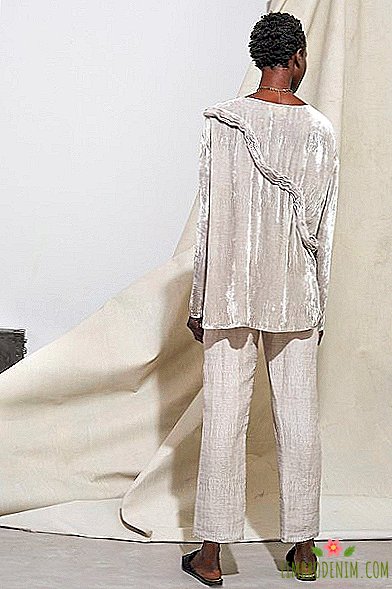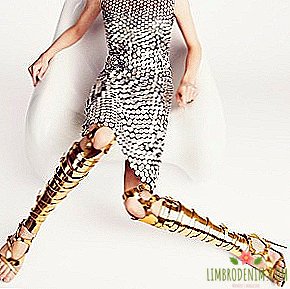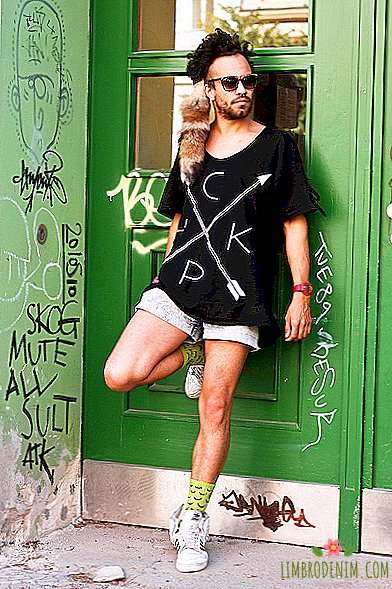Fashion psychology: science or profanation
Let's recall the most common stereotypesconcerning clothes: “the hypertrophied shoulder line subconsciously signals the desire to dominate”, “on a date, especially the first, it is better to come in things from delicate fabrics”, “a fur coat is status and prestige”. It would seem that today, in the conditions of the complete nulling of all fashionable rules and conventions, the evaluation templates should disappear: in fact, in the summer of 2018 will anyone consider themselves enlightened and conscious to draw conclusions about the character or psychological state of the interlocutor based on the fact what is it wearing?

But it is enough to scroll through a couple of reputable media resources from the New York Times to the Financial Times to be sure: such an analyst not only does not give up his position, but, on the contrary, claims to be a separate scientific doctrine. The leading and most quoted expert in this field is Donn Karen, who calls herself the founder of fashion psychology. Karen teaches this new discipline, which studies the influence of clothing on the human mentality, at the New York Institute of Technology and at her own online institute. In the Financial Times, Karen unexpectedly admits that Melania Trump helped her to increase her media authority and become a sought-after specialist: the stubborn silence and the absence of any emotional reactions to the events led the media community to look for encrypted messages in the folds of her clothes.
Karen has developed a special terminology, with the help of which she explains how clothes form our way of thinking or, on the contrary, how our psychological characteristics manifest themselves in the way we dress. For example, the desire to wear the same things Karen classifies as a symptom of OCD (obsessive-compulsive disorder) and gives this habit the status of the syndrome: "repetitious wardrobe complex".
Carolyn Meyer, a practicing cognitive psychologist who four years ago started a fashion psychology course at the University of the Arts in London, is less categorical. "For someone, a red jacket symbolizes passion and energy, and for someone such clothing is a materialized embodiment of vulgarity, therefore it’s too early to talk about a common methodology in the field of fashion psychology, we have too little experience and knowledge in this area", Like this is a compilation of interviews with Carolyn.


The main task of the psychologist, according to Meyer, is to help a person "eliminate the difference between how he wants to be represented in society and how society presents him in reality, and clothing remains the tool by which such a metamorphosis becomes feasible." It seems that is why today the make-up genre is so in demand on TV and YouTube-space. And domestic pioneers in the field of fashion psychology can rightly be considered numerous epigones and colleagues of Evelina Khromchenko and Alexander Vasilyev, explaining to the ignorant, "why clean clothes and combed hair are important."
Graduated specialists claim more serious competence: first-year graduates Meyer, for example, recently launched a separate online resource on fashion psychology and positioned it as an unprecedented breakthrough in the media. But for now, the site’s materials are a rather lengthy and secondary analytics, with which professional publications cope much more quickly.
In fact, adherents of fashion psychology are trying to scientifically substantiate and legitimize an already existing sociocultural phenomenon - the institution of professional personal stylists. It is no secret that, in addition to their direct duties, a representative of this profession sometimes assumes the function of a psychologist: very close and trusting relationships often build up between the client and the stylist, and the process of selecting a wardrobe has much in common with therapeutic practice.


Fashion psychology is also a desperate attempt to overcome the skepticism that accompanies the activities of the fashion community, as if they were putting the scientific base under the craft. Fashion is an important and one of the most dynamically developing segments of the world economy, but society has not yet learned to treat this industry as a socially significant phenomenon, and representatives of fashionable professions are regarded as serious professionals, so fixing fashion psychology as an academic discipline could would raise the status of the profession. If the psychological approach wins, the tariffs for the services of the stylist will only grow: now the graduate can not only find the right things for you and your lifestyle, but also explains how to adjust your psychological state with the help of clothes.
How valid are these recommendations, the question is open. Anna Madni, a cognitive psychologist, says: “Fashion psychology still has very little empirical research, and issues of personality and self-awareness need to be studied very thoroughly, many-sidedly and many years. At this stage, the statements I heard are rather unfounded - they are no more legitimate than fan Shui, that is not at all legitimate. "
Of course, we live in a golden era of reflection. We have the time and financial opportunities to reflect on what makes up our sense of happiness (obviously, in the decorations of the society of overconsumption - from the possession of beautiful and comfortable clothing including). Many forecasters believe that fashion psychology will become an important component of the philosophy of rational and conscious consumerism. Well, time will tell, but for now it seems that the icon can be considered the hero Nicholas Cage of Lynche's “Wildheart,” who declared that his snake-skin jacket was “a symbol of faith in the freedom of the individual.”
Photo: MARINE SERRE, NAND, A.W.A.K.E., Laura Siegel, Mara Hoffman





